
The SCARC Oral History Program
The Oregon State University Libraries Special Collections and Archives Research Center (SCARC) is home to one of the more active oral history programs administered by any archive on the West Coast. Since 2010, SCARC faculty and staff have conducted or collected well over 1,200 interviews, in the process creating a body of work that has contributed greatly to the scholarly documentation of past events while also providing useful context on contemporary life at OSU and across the Pacific Northwest. All of SCARC's more recent interviews have been cataloged alongside several decades' worth of legacy oral history collections that are maintained and preserved by the department. SCARC is currently the repository for more than 2,500 oral interviews, the earliest of which was conducted in 1949.
Finding aids for all of SCARC's fully processed oral history collections are available here. These guides are updated regularly as new interviews are completed, and additional guides are being written for collections that are not yet fully processed.
We have also created a detailed tutorial on Oral History Interviewing Methods and Project Management that is written for individuals interested in pursuing oral history projects of their own. Included in this resource are thoughts on interview preparation, permissions and access, description and transcription, oral history ethics, and ways in which SCARC is able to assist external partners.
OSU Oral History Online
A primary objective of the SCARC Oral History Program is to provide free and open access to as much of its content as possible. To this end, interviews totaling more than 1,200 hours of recording time have been contextualized, transcribed or indexed, and made available online. One component of this work, called The Voices Initiative, utilizes a combination of the Oral History Metadata Synchronizer and the Omeka web publishing platform to populate a growing number of subject-specific web portals. All of SCARC's oral history project websites are itemized below, as are processed archival collections whose contents are linked through finding aids. Included as well are unprocessed archival collections that are accessible through other means.
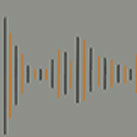
SCARC Oral History Online
A hyperlinked alphabetical listing of all the narrators whose oral history interviews have been contextualized and made available online by the SCARC Oral History Program. This is the perfect gateway to begin conducting research in SCARC's ever-expanding network of online oral history content.
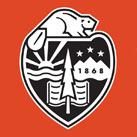
Oregon State University Sesquicentennial Oral History Project
The largest oral history project in school history, the "OH 150" project includes more than four-hundred hours worth of interviews with alumni, faculty, staff, current students and university supporters. Every college at OSU is represented within the collection as are alumni from every decade between the 1930s and the 2010s. The contents of the website may be browsed through an A-Z list or explored by interviewee affiliation or theme. In addition, .mp3 audio files of every session are freely available for download.
The Voices Initiative
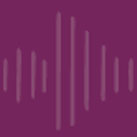
Multicultural Voices of Oregon
For communities who have been traditionally marginalized in both the historical record and in historiography, oral histories can be a form of empowerment, a way in which community members can literally add their voice to the historical narrative. This web portal features interviews collected by the Oregon Multicultural Archives and the OSU Queer Archives, and reflects the experiences of Oregon's African American, Asian American, Latino/a, and Native American communities, as well as LGBTQ+ people within OSU and Corvallis.

Voices of the Forests, Voices of the Mills
Since the beginning, Oregon's forest lands have served as home, workplace, laboratory and sanctuary to its inhabitants, and have played a central role in forging the region's culture and its character. This website seeks to document the impact that the state's forests have made on its citizens by documenting the voices of a diverse group of individuals who have been deeply connected to Oregon's timber country.

Voices of Northwest Brewing
This website features interviews collected for inclusion in the Oregon Hops and Brewing Archives (OHBA), the first archive in the U.S. devoted to creating, collecting, preserving and sharing records related to the brewing industry in the Pacific Northwest. The OHBA oral history collection documents the stories of people involved with Pacific Northwest hops and barley farming; craft and home brewing, cider, and mead; and scientific research.
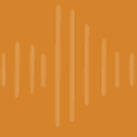
Voices of Oregon Agricultural College
Consisting of a series of interviews conducted primarily in 1979 with a collection of individuals who maintained a connection to Oregon Agricultural College (as Oregon State University was known until 1927) the majority of these interviews were captured by staff working at the Horner Museum, which resided on the Oregon State campus for seventy years. The narratives offered in this exhibit by alumni, retired faculty, and more casual acquaintances of OAC have been digitized from recordings made to audiocassette and transcripts created with typewriters.
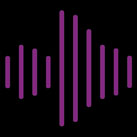
Voices of Oregon Burlesque
Growing from a fringe entertainment into a mainstream performance art form and economic force, Burlesque encompasses a wide variety of contemporary interpretations. With inclusivity as its guiding principle, people of all ages, sizes, gender identities, backgrounds, and physical abilities are participating in and reinventing Burlesque for the new millennium. This collection of interviews with producers, creators, and performers documents the resurgence of Burlesque as a multicultural social movement across the state of Oregon.

Voices of OSU Women
Women's voices have been crucial to the story of Oregon State University since the institution's founding in 1868. This website, which will be expanding over time, is dedicated to presenting women's stories as they have been collected by a broad range of oral historians from the 1970s to today. Included are interviews with generations of alumnae as well as faculty members, staff, and students representing a wide array of disciplines and institutional points of view.

Voices of a Warming Planet
A collection of twelve interviews with OSU faculty, staff and students who are engaged in climate change research from multiple scholarly vantage points. Touching on disciplines including the oceanographic and atmospheric sciences, forestry, agriculture, ethics, public health, and public policy, this resource wrestles with the implications of what might be the twenty-first century's most pressing issue, anthropogenic climate change.
Other Web Portals
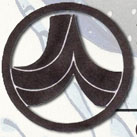
Japanese-American Association of Lane County, Oregon Oral History Collection
A collection of recordings with Japanese-Americans living in Eugene, Oregon and the surrounding areas, these interviews document the immigrant experiences of the interviewees' parents and grandparents; their World War II experiences in the United States or in Japan, and their lives in Eugene and neighboring communities in the years following the end of the war.
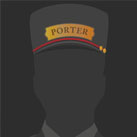
Oregon African American Railroad Porters Oral History Collection
Comprised of thirty interviews conducted in the 1980s between film maker Michael Grice and African American railroad porters employed in the Portland area, these recordings form much of the background research used for Grice's 1985 film, "Black Families and the Railroad in Oregon and the Northwest."

Oregon State University Extension Service Faculty and Staff Oral History Collection
Conducted prior to the centennial of the Oregon State University Extension Service in 2011, this collection of sixteen interviews with emeritus faculty helps to tell the story of Extension in Oregon over a fifty-year period following World War II, and covers topics including agriculture, 4-H, home economics, energy, community development, Sea Grant, communications, administration, and support.
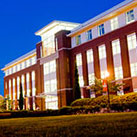
Oregon State University Libraries and Press Community Interviewing Project
An on-going initiative that seeks to collect and preserve institutional knowledge about OSU Libraries and Press by gathering the stories of those who work here. All participants respond to the same questionnaire and all interviews are available as both downloadable audio files and streaming media objects.
Additional Online Resources
Processed Collections Linked Through Finding Aids
- How OSU Grew Nuclear Science Oral Histories (OH 16)
- Ambassador Thomas Graham, Jr. Interviews on Arms Control and Nuclear Disarmament (OH 36)
A Rich Legacy of Oral History at OSU
For many decades, oral history at Oregon State University was primarily conducted and administered by the Horner Museum, which was located on campus from its founding in 1925 to its closure in 1995. The museum oversaw a vibrant oral history program that targeted individuals or communities of importance to the university and to the region, and also carried out smaller and more specific projects including, for example, an oral history of the CH2M Hill, Inc. engineering firm, which was founded in Corvallis. Other specific projects that the museum completed included a study of Basque sheepherders in rural Harney County; an examination of the historic Benton County Courthouse; and a survey of the OSU Microbiology Department, which is more than a century old.
While many of these smaller initiatives have been described as discrete archival collections of their own, the bulk of the museum's oral history output has been organized into the Horner Museum Oral History Collection (OH 10), a massive collection that features more than 400 audiocassettes as well as six cubic feet of paper transcripts and project files. All of the cassettes held in this collection - and in many smaller legacy collections as well - have been migrated to digital format and are available upon request.
With the creation of the Special Collections and Archives Research Center in 2011, the responsibility for oral history activities at OSU moved firmly into the Valley Library. Today, SCARC faculty and staff pursue an ambitious agenda of interviewing and recording, with particular emphasis having thus far been placed on the documentation of university history; multicultural communities of Oregon; hops and brewing in Oregon; and the history of science, particularly as it pertains to the life and work of Linus Pauling.
The Oregon State University Sesquicentennial Oral History Project
The modern equivalent of the Horner Museum Oral History Collection, The Oregon State University Sesquicentennial Oral History Project is the largest oral history initiative ever conducted at OSU. From 2013-2017, SCARC faculty, staff and students worked in support of the project's mission "to holistically document the history, impact and ambitions of the university through the recollections of various alumni, faculty, staff, administrators and current students affiliated with OSU." The completed project includes:
- More than 400 hours of total interview time and over 3.4 million words of transcription. In total, 1.8 terabytes worth of born digital video and audio were collected by the project's oral historians.
- In excess of 100 interviews with OSU alumni from every decade between the 1930s and present day.
- Over 100 additional interviews with OSU faculty, both current and emeritus, representing each of OSU's eleven colleges.
- Another 20 interviews with OSU staff (current and retired) and 10 more with current OSU students (undergraduate and graduate).
The full contents of this unique and valuable resource are keyword searchable and can also be sorted by affilation or theme. Users are also able to download the audio of any of the 276 interviews presented on the web portal.
For many more details, see the OH 150 project page.
Get Involved
Further inquiries about the SCARC Oral History Program, including those from OSU students interested in pursuing oral history projects for academic credit, should be directed to Chris Petersen, Senior Faculty Research Assistant in SCARC.

